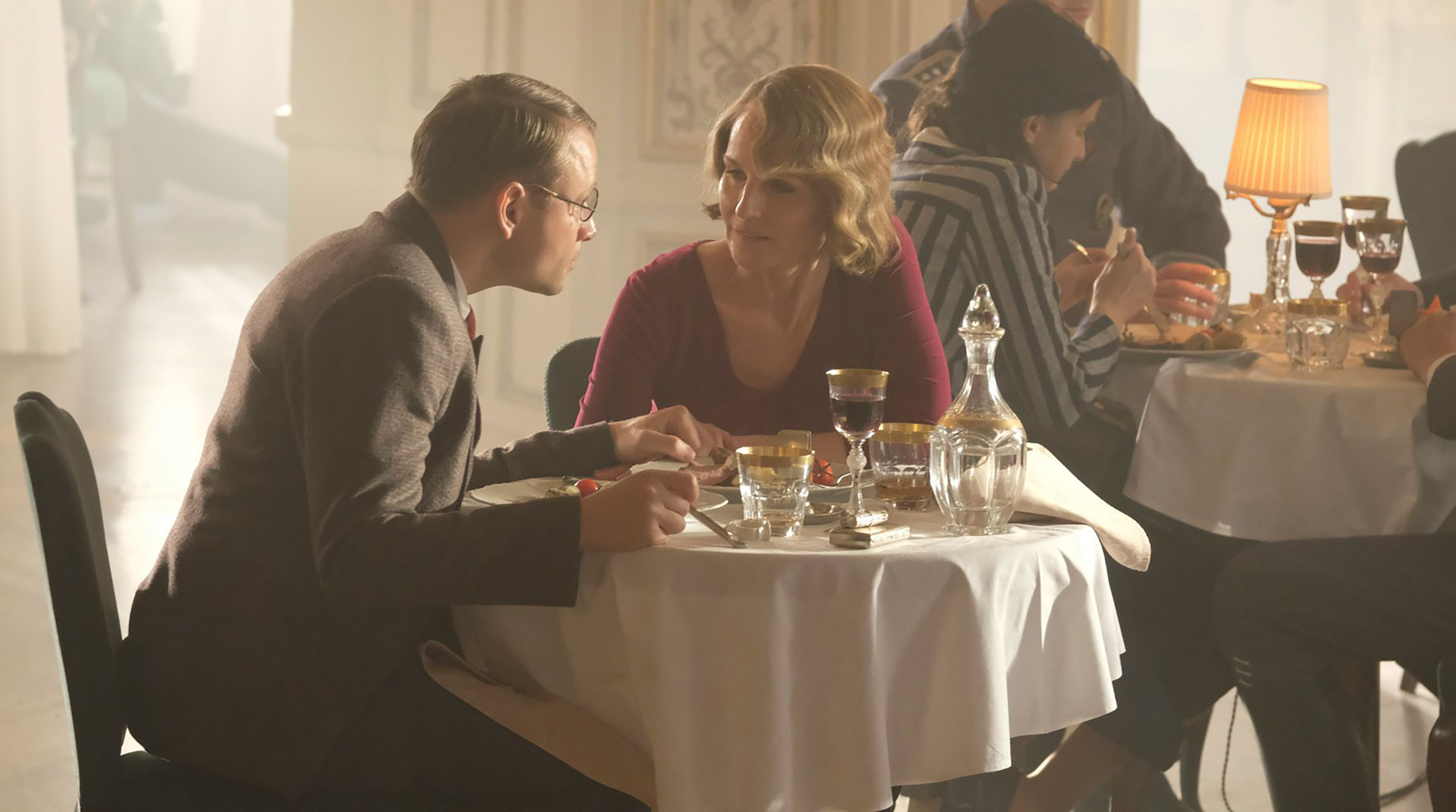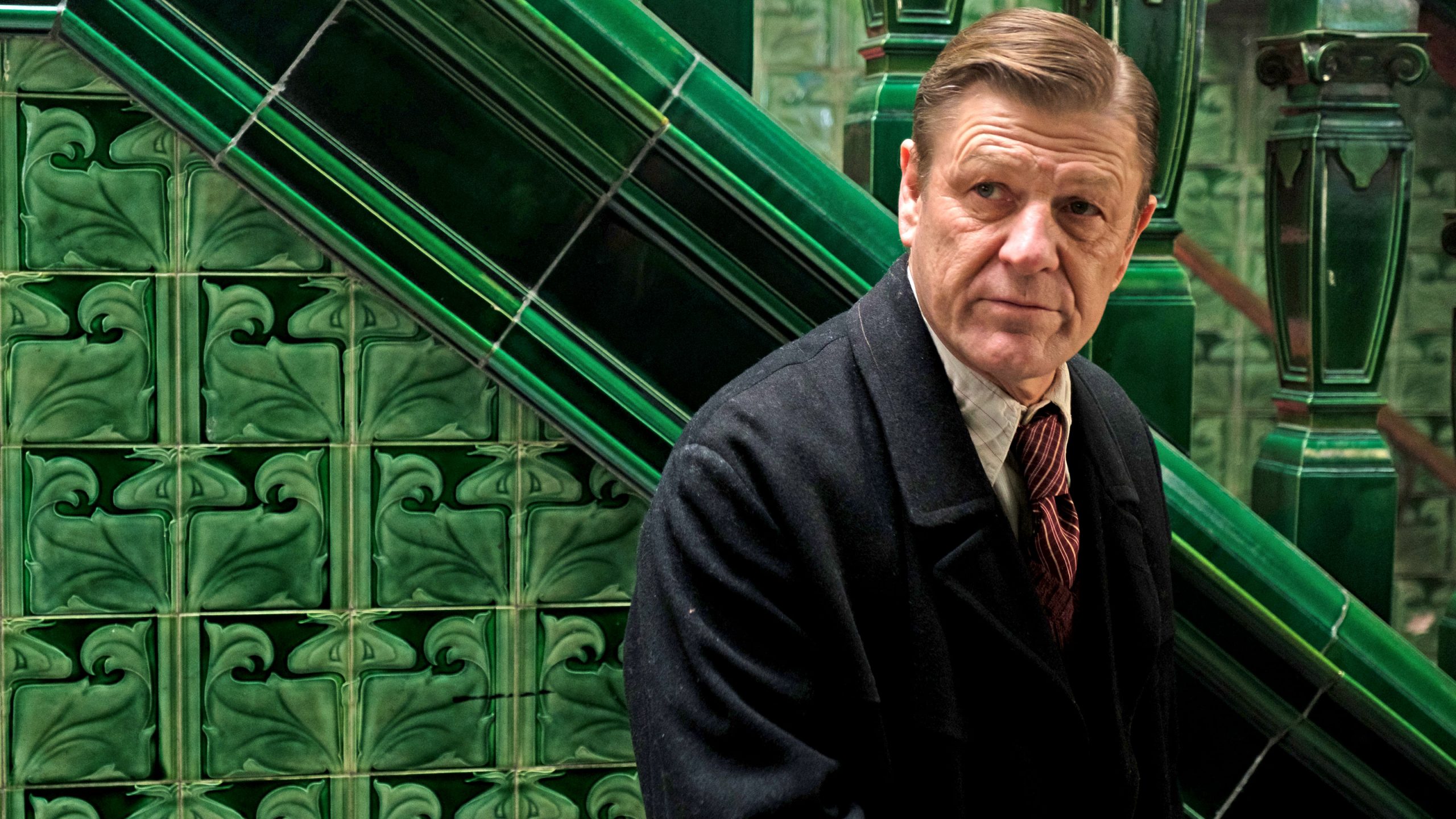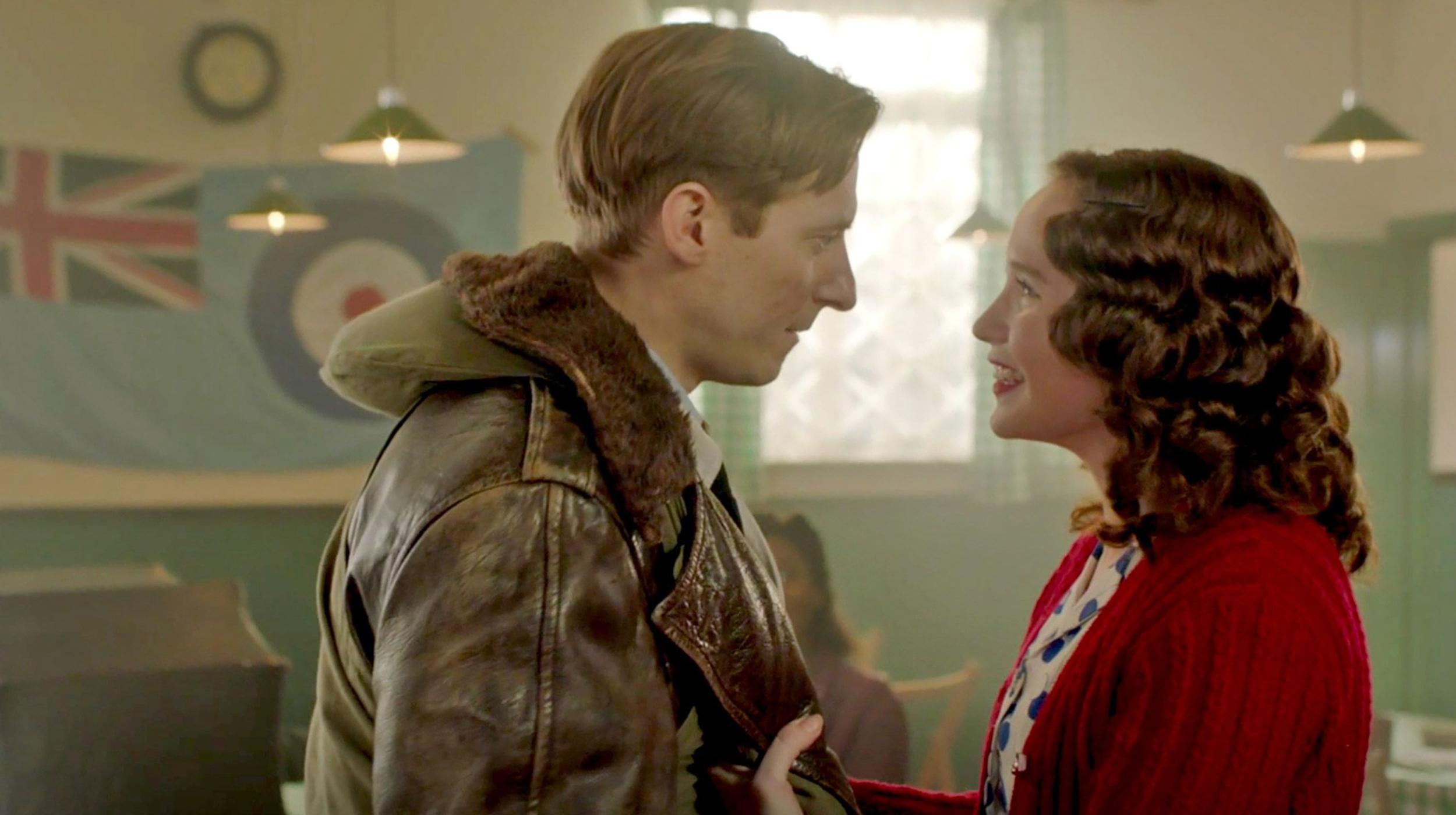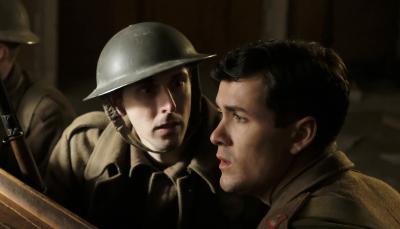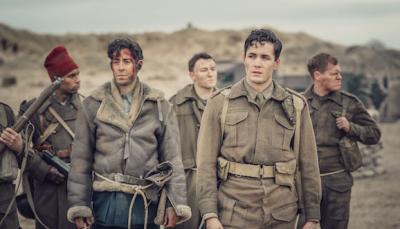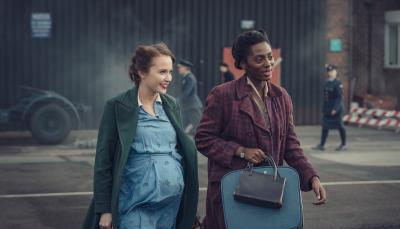'World on Fire' Season 1 Ends at a Dark Moment for World War II
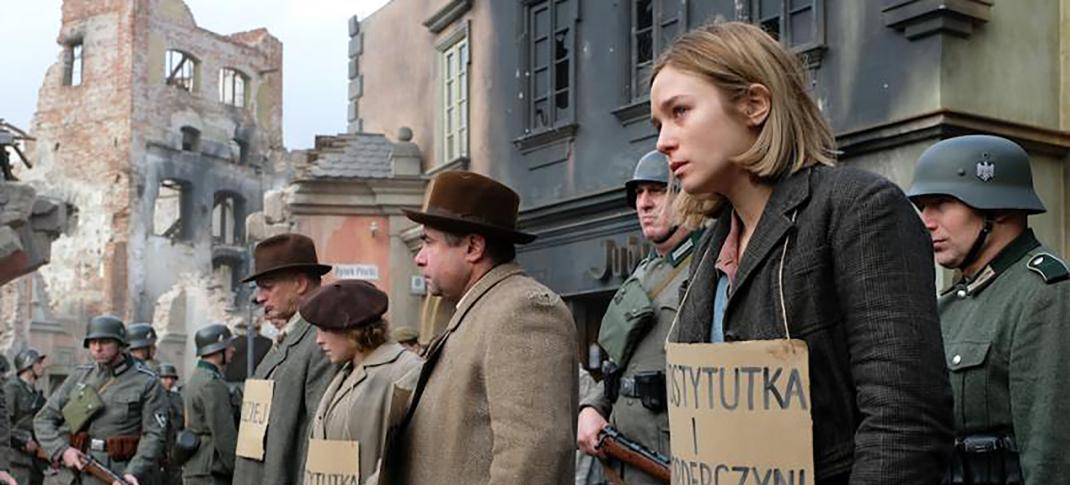
Zofia Wichlacz as Kasia Tomaszeski in World on Fire Season 1
Mammoth Screen
It is the beginning of the Battle of Britain, a turning point in the war. In Berlin, Nancy attends the funeral of Mrs. Rossler and Hilda. The Rosslers’ son Klaus (Bruno Alexander) has been given leave from the army and breaks down during the service. Nancy follows him out of the church and comforts him as he weeps in her arms. He feels complicit in his mother’s and sister’s deaths and is heartbroken, while Nancy tells him he has no choice. We learn, in Nancy’s ensuing conversation with Mr. Rossler, that she, too, has a son.
Jan: "I’ve been to Stanford Grove Elementary School. I’m not afraid of anything."
Nancy makes a surprise visit to Webster in Paris, who asks her to use her influence to get Albert released. His latest visit to Albert has been painful and angry; Albert asks him not to come back. So Nancy starts with Schmidt, her censor. Schmidt turns their meeting into a dinner date, and after asking her if she’s flirting (an emphatic no), tries to find out if this imprisoned man she is so concerned about is her lover. Nancy states that she doesn’t have a lover, and Schmidt makes his move, unaware that she’s concealing cutlery beneath the table.
Webster is angry at her failure, but it turns out that this episode with Schmidt has triggered some trauma from Nancy’s past. Nancy’s tough facade shatters, and she weeps, to her nephew’s shock. She tells Webster that she was raped on her first European assignment and repeats what she told Kasia in the first episode, that women are in danger in wars. She returns to Berlin, and although she wants Webster to leave Europe, he says he’ll stay as long as he’s needed.
Meanwhile, Lois is in Manchester, enormously pregnant, and goes into labor at a concert as she’s about to start singing, giving birth to a daughter. Back home with Douglas, he offers to exchange rooms with her; she’s still in the bedroom, divided by a curtain she shared with Tom. But Douglas no longer believes Tom is coming home. When there’s a knock on the front door, however, he succumbs to his usual fear that it’s someone bearing bad news. Instead, it’s Vernon who's there to make a touching proposal of marriage to Lois. But Lois tells him she can’t accept, overwhelmed by just about everything in her life.
Harry has completed his training and will shortly be sent on a mission to Poland to rescue some members of the resistance. (Guess who.) He has told Lois that she’s the beneficiary of his will. She repeats that she doesn’t want his money. Robina has learned from Douglas that Lois’s baby has been born, and Harry takes offense that she refers to her as a bastard. Robina refuses to visit the baby admitting it would break her heart. Harry retaliates: "When did you grow a heart?" He storms out and drives to the Bennett’s house. Douglas finds him parked outside and tells him what a terrible mistake he’s made.
Tearfully, Harry asks what he should do. Douglas, obviously drawing on his own experience, says: "You carry your pain. You live with it. That’s what you bloody well do." Harry returns to his mother and tells her that he’s leaving the country the next day and apologizes. He puts his hand over Robina’s, and she says she’s never been sure what to do about this gesture of comfort. It happened a lot after Harry’s father’s death, and she finally says aloud that his death was a suicide, but she can’t forgive him. Neither does she acknowledge shellshock as an illness, still believing it’s a moral failure. Harry goes to say goodbye to Jan, who wants to come kill Nazis. Harry tells Jan he’s already a hero.
After he’s gone, Robina summons Douglas in great distress. She’s intercepted a letter from Grzegorz, who is being treated for shellshock nearby, and tells Douglas she can’t possibly go to visit. It doesn’t seem to occur to her that it might be equally, or even more, difficult for him. It’s where he was treated, it turns out, and with little sensitivity. As he and Jan enter, they find a man weeping, and Douglas comforts him. Jan and Grzegorz’s reunion is tear-jerkingly lovely. Jan is thrilled at yet another opportunity to kill Nazis and wants Grzegorz to take him back to Poland. But Grzegorz says he’s in no shape to fight. Douglas comforts him and returns with Jan to Robina’s house for a game of chess.
Lois also comes to visit with the baby, causing a showdown with Robina when Lois asks if she’d like to hold her grandchild, and Robina looks at her blankly and asks why. Robina tells Lois Jan will miss her if she stops visiting. After a rather confusing exchange, it turns out that she’s afraid Lois will reveal that Harry is the baby’s father, and since Jan idolizes both his sister and Harry, this might be upsetting. Lois agrees to keep the secret. She accepts money from Robina, offered not as a bribe but as an appeal to common sense.
Robina meets Douglas outside — he’s just back from visiting Grzegorz — and they both agree they’ve done what has to be done. There seems to be a new peace and openness between them now, and Douglas is just as much a hero as those fighting in Europe.
Lois has decided that she is going to turn down Vernon’s proposal, and she and Connie go to the airfield so she can break it to him in person. He’s out on a mission, which may be the Battle of Britain (Douglas watches a newsreel of the famous battle at the movies), and one by one, the pilots return. Randy tells the two women that Vernon became separated from the others when things “got sticky.” The tension builds as the two women wait, but finally, Vernon returns on a borrowed bicycle after an emergency landing twenty miles away. Of course, by now, Lois has realized she's an idiot and wants to marry him, and she flings herself into his arms.
In Warsaw, Kasia and Tomasz have a brief but emotional scene in the kitchen of the cafe where they almost embrace, a glimpse of what their relationship could have been. But Kasia’s luck runs out and they are arrested. He is hanged, a sign around his neck reading “Jew and Traitor.” Kasia is led to the gallows the next morning, but at the last moment, there is an explosion, and she and two others are hustled away just as Harry parachutes into Poland. He runs into a couple of German soldiers who ask for his papers and ends up shooting them. The safe house is a barn where other resistance fighters meet him to wait for the three charges to arrive: The three rescued from the hanging, including Kasia.
That night Kasia and Harry talk and confess how they have both been changed, hardened by the war. It’s bittersweet, realizing that love may not be the answer. Kasia tells Harry she chose to kill, and it was not an issue of survival. She believes Harry’s experience is worlds away from hers: The next morning, a truck arrives to take them into Yugoslavia, but they’ve been betrayed. Under a shower of machine gun fire, Harry and Kasia run, planning to meet at the top of a hill nearby. She stops halfway up to catch her breath; we see Harry ahead, waiting for her.

